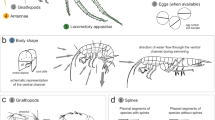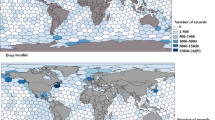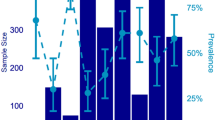Abstract
THE amphipod Orchestia bottœ" M. Edwards was first recorded in Britain by Gordon1, who found it on the banks of the Thames at Richmond in 1942. This species, from the Mediterranean area, appears to be spreading and invading the freshwater systems of Europe. Dr. Gordon quotes records of its being taken in France (Cambrai, Nancy), Holland (80 km.from the sea), Belgium and Germany. The object of this note is to record that in July 1946 we found it in large numbers, adult and very young, in the damp roots of grass just above the water on the right bank of the Thames at Oxford., about half-way between Folly Bridge and Ifney Bridge ; this is 92 miles upstream from the first lock (Teddington). In July 1947, one of us (A.J.C.) found it again in the same spot, still quite abundant though perhaps less so than in 1946. The severity of the spring had not apparently affected it.
This is a preview of subscription content, access via your institution
Access options
Subscribe to this journal
Receive 51 print issues and online access
$199.00 per year
only $3.90 per issue
Buy this article
- Purchase on SpringerLink
- Instant access to the full article PDF.
USD 39.95
Prices may be subject to local taxes which are calculated during checkout
Similar content being viewed by others
References
Gordon, I., Proc. Linn. Soc. London, Pt. 2 (Jan. 21, 1944).
Author information
Authors and Affiliations
Rights and permissions
About this article
Cite this article
CAIN, A., CUSHING, D. Second Occurrence and Persistence of the Amphipod Orchestia bottœ M. Edwards in Britain. Nature 161, 483 (1948). https://doi.org/10.1038/161483b0
Issue date:
DOI: https://doi.org/10.1038/161483b0
This article is cited by
-
Distribution of British Freshwater Amphipoda
Nature (1951)



